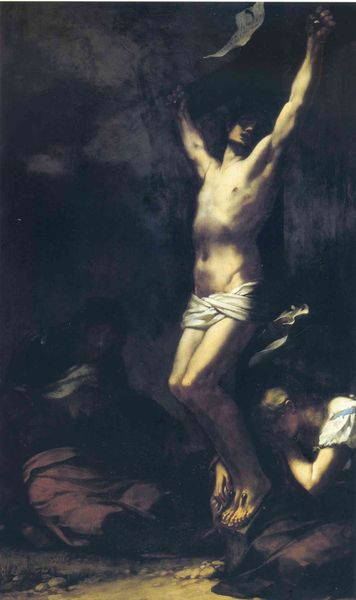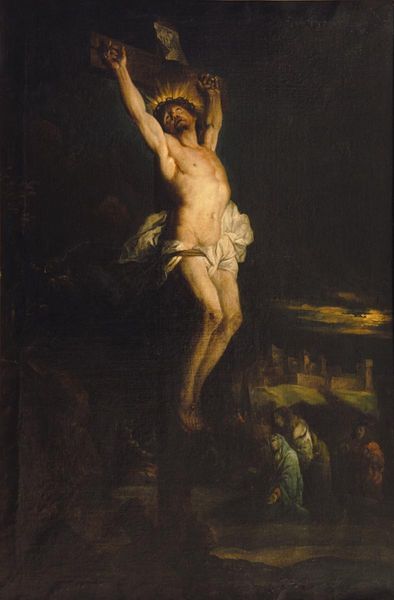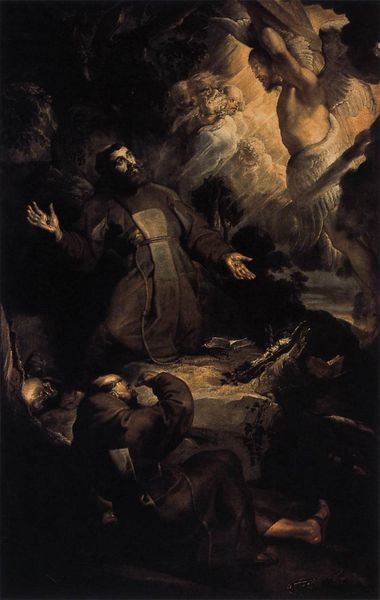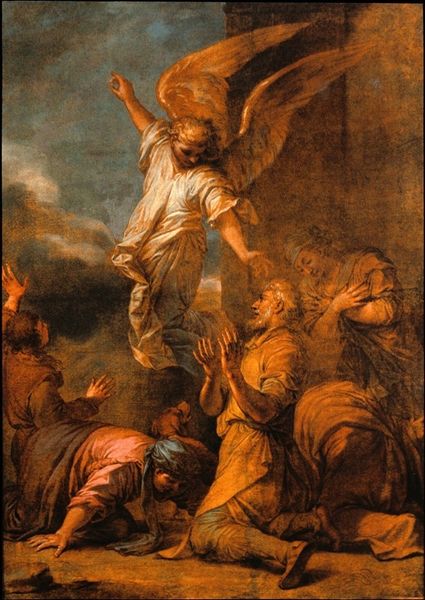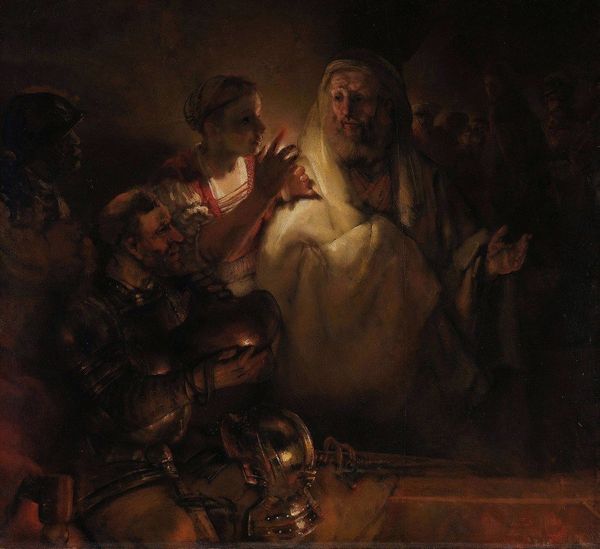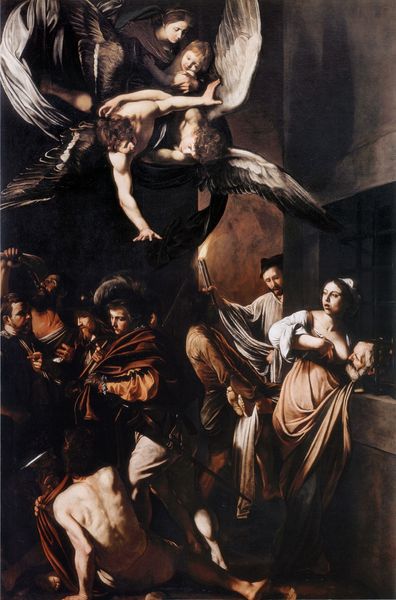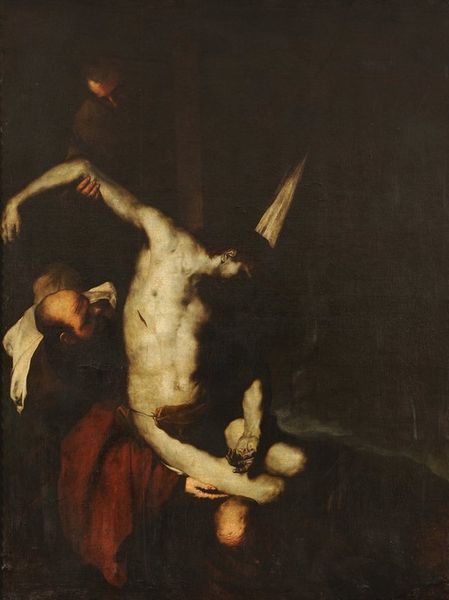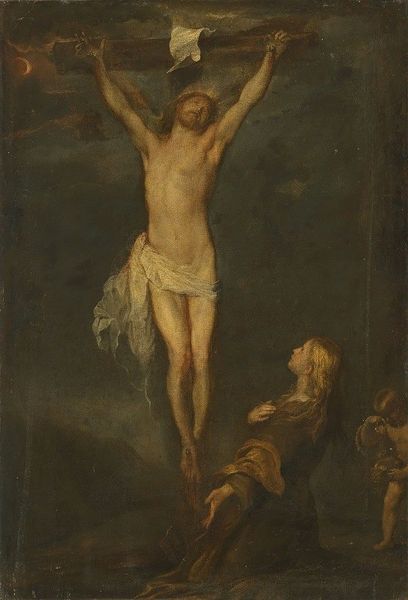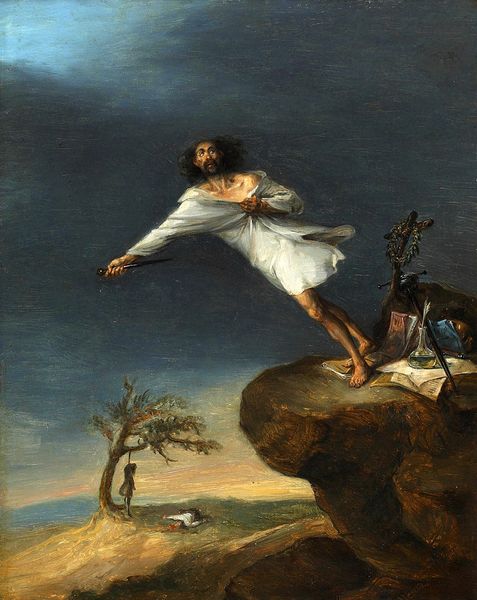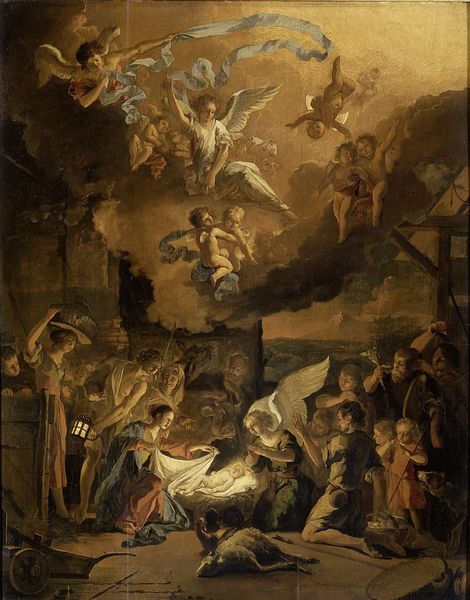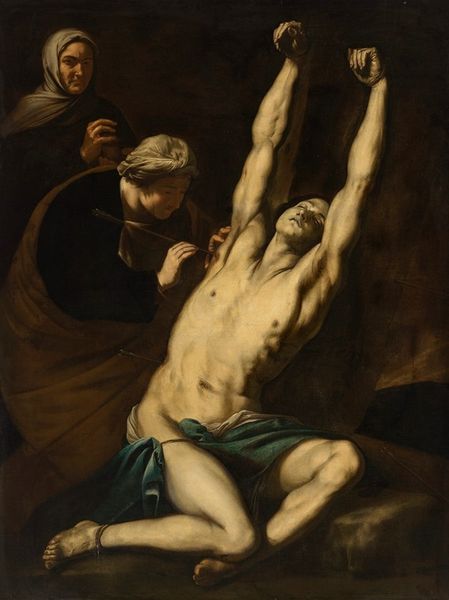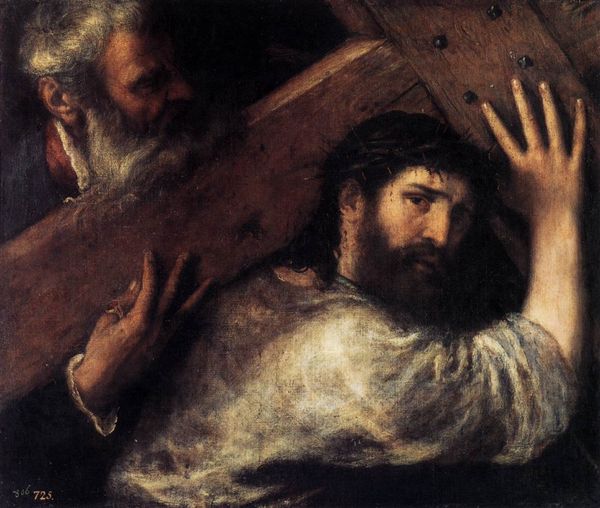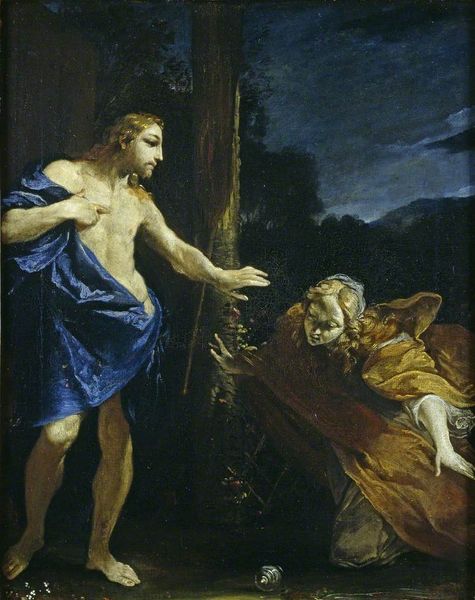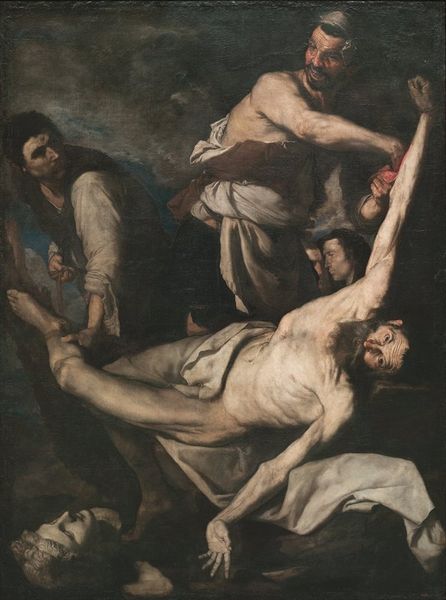
drawing, charcoal
#
drawing
#
charcoal drawing
#
figuration
#
romanticism
#
surrealism
#
christianity
#
charcoal
#
history-painting
#
charcoal
#
christ
Dimensions: 47 x 35 cm
Copyright: Public domain
Curator: Goya's charcoal drawing, "Christ on the Mount of Olives," created around 1819, immediately strikes me as an emotionally turbulent scene. The darkness almost swallows everything. Editor: The almost monochromatic charcoal adds to that sense of foreboding, doesn't it? I'm interested in the artistic process itself here, you know. The choice of charcoal feels deliberate, grounding a pivotal spiritual moment in raw materiality. Goya seems to pull transcendence from earthbound carbon. Curator: Absolutely. But think of the loaded imagery at play. The angel, offering the cup, signifies Christ's impending sacrifice – it's heavy with theological meaning, evoking centuries of art historical precedent where the chalice carries associations of blood and covenant. The divine intervention within such an isolated scene carries a weighty burden of faith, wouldn't you say? Editor: Indeed. I see a correspondence between the cup the angel bears, as a vessel, and the charcoal itself as a manufactured tool, or 'technology' – facilitating artistic transmission of Goya’s personal visions to the masses. He created drawings like these as mass-produced lithographs for wider audiences—challenging art's traditionally elite associations. Curator: Yes, lithographs disseminated to a wider audience certainly shifted perceptions. Yet, going back to the original image itself, the looming darkness speaks volumes about Goya's state of mind – a reflection of the sociopolitical anxieties pervading Spain at that time, wouldn't you agree? Editor: I wonder too how charcoal allowed for easier revisions compared to oil paints, revealing aspects of labor typically hidden within art-making. In doing so, did this become a conscious effort to make the art creation experience more visceral for his audience and himself, by using humble tools accessible for reproduction by all? Curator: It's intriguing to consider that aspect. It invites such questions. In terms of our shared viewing experience of it now though, I walk away deeply moved by Goya’s poignant depiction of faith in a time of uncertainty. Editor: And I'm left contemplating how readily accessible materials and multiplying technologies help disseminate creative expression—connecting human labor to timeless themes.
